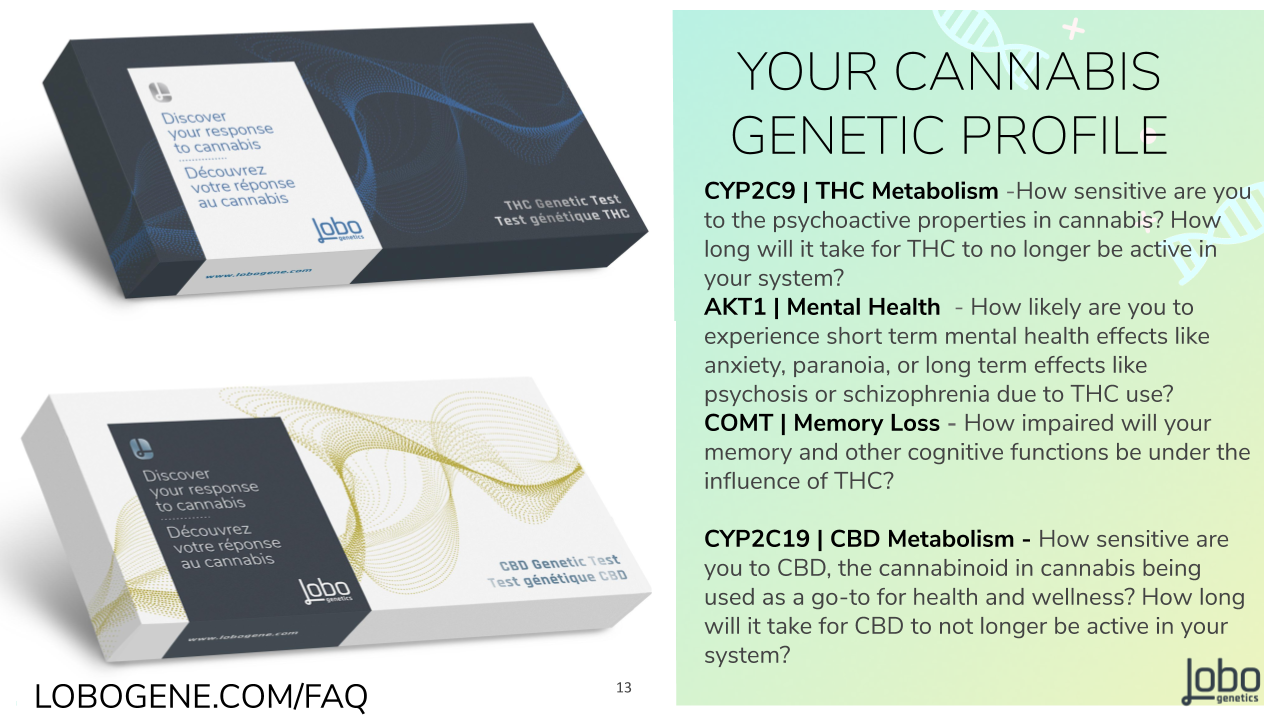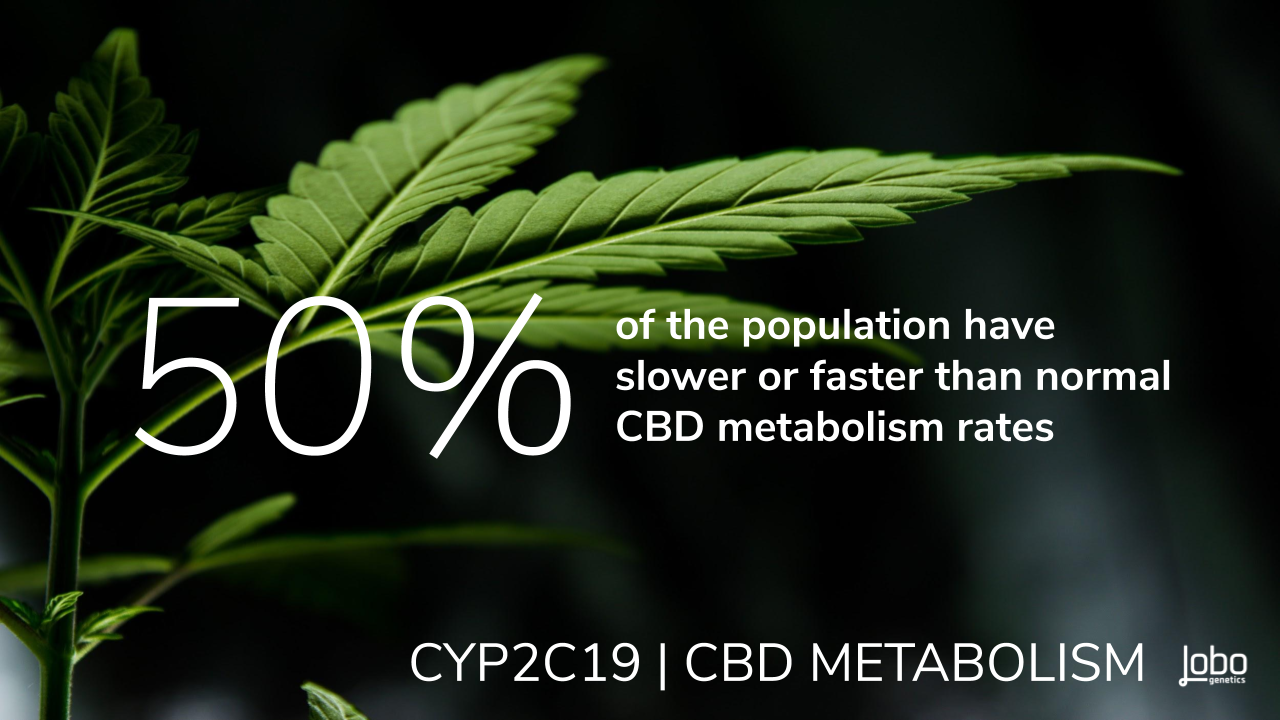The cannabis journey is a unique one for each of us. But with the right knowledge, you can navigate it more safely and minimize the guesswork necessary to avoid adverse effects.

THE KEY TO A SAFER CANNABIS EXPERIENCE MAY BE IN YOUR GENES
DNA is arguably the most famous biological molecule and is present in all living things on Earth. Scientists refer to the totality of DNA in people as the human genome (containing a sequence of all genes), but you can think of DNA as the book of life. It acts as an instruction manual that tells your body how to develop, grow, reproduce, and function. Individual differences in our DNA explain why some people have blue eyes or red hair, and even why some people are more sensitive to cannabis!
A complete copy of the genome (AKA DNA, our “book of life”) lives inside each tiny cell in the human body, which is pretty incredible because if you were to take a single strand of human DNA and stretch it out, it would be over 6ft tall! Amazingly, if you were to take all the DNA in your body and stretch it out, it would reach to the moon and back almost 1500 times (4 times to sun and back).1
DNA = THE BOOK OF LIFE
DNA is such an information powerhouse that scientists have broken it down into smaller sections in order to identify their unique functions. Let’s think of these as the chapters in the DNA book of life, known as chromosomes. We have 23 pairs of chromosomes, inherited from our parents, with each pair containing 1 part from mom, and 1 part coming from dad.
Inside each chapter (chromosomes) of our book of life (DNA), there are thousands of “sentences” known as genes.
Each gene contains the instructions (code) that tells each cell what is supposed to do(build a protein or enzyme for example) so that our bodies function optimally. Little typos in these sentences, or variations in a gene, are what makes humans unique. 2

This representation created by the National Society of Genetic Counselors (NSGC) 3
Through research, scientists have identified several human genes that are responsible for interacting with cannabis once it’s inside the human body. Your Lobo Genetics test results will tell you which variation of 4 of these genes you have and provide some insight on how your body may react to THC and CBD, the most talked about compounds (known as cannabinoids) in cannabis.
Exploring Your Cannabis Journey
Knowing your variation of these genes will allow you to more safely navigate your cannabis journey, and minimizes the guesswork needed to avoid adverse effects. You can log in to LoboJane.com to sync your Lobo THC & CBD test results to our AI-powered algorithm, to get the most personalized recommendations for cannabis products based on real science and your unique cannabis genetic profile.

Got questions about our THC and CBD Cheek Swab Kits? The answers are probably here .
HOW COMMON ARE THESE GENETIC VARIATIONS?

The likelihood that you carry a variation of one of these 4 genes is more common than you might think.
Your unique combination of CBD & THC Metabolism Rates, Memory and Mental Health effects creates your Cannabis Genetic Profile that indicates why you may be more sensitive to the effects of cannabis than others.

The likelihood that you are a slow metabolizer of THC depends on your ethnicity.
Caucasians are the most likely to carry the CYP2C9*1/*3 or *3/*3 variants for slower THC metabolism. 6

Your ethnicity can affect your likelihood of memory loss when using THC.
Africans and Asians are the most likely to carry the COMT Val/Val variant for higher memory loss risk. 7

THC effects dopamine levels in the brain which isn’t always enjoyable. Too large of an imbalance of dopamine can cause short-term adverse mental health effects no matter what version of the AKT1 gene you have.
AKT1 C/T (intermediate risk for acute adverse effects from THC use) is carried by 50% of the population. The AKT1 C/C variation is carried by another 25% percent (higher risk for long-term mental health diagnosis with frequent THC use). 8
Now that you’ve learned about what your DNA has to do with your cannabis journey, you may want to find out about your unique cannabis genetic profile. Lobo tests for all the genes mentioned above with a simple cheek swab kit done from the comfort of your own home.
Written by: Samantha Gordashko
Article provided by our partners at lobogenetics (www.lobogene.com/en_ca)
You can order your Lobo test CBD + THC Genetic Test kits here.
If you want to receive the latest Higher Learning updates delivered to your inbox, scroll down to subscribe to our newsletter.
REFERENCES
- Nature.com (n.d) DNA Is a Structure That Encodes Biological Information https://www.nature.com/scitable/topicpage/dna-is-a-structure-that-encodes-biological-6493050
- TED-Ed (n.d) DNA: The book of you Joe Hanson https://ed.ted.com/lessons/dna-the-book-of-you-joe-hanson
- DNA Book Diagram. (n.d.) Genetic Counselors Organization https://www.aboutgeneticcounselors.org
- Hashemizadeh, Z. et al. (2018). Prevalence of CYP2C19 Genetic Polymorphism among Normal People and Patients with Hepatic Diseases. https://www.ncbi.nlm.nih.gov/pmc/articles/PMC5839627/
- Martis, S. et al. (2013) Multi-ethnic distribution of clinically relevant CYP2C genotypes and haplotypes. https://www.ncbi.nlm.nih.gov/pmc/articles/PMC3396745/
- Sachse-Seeboth et al. (2009).Interindividual variation in the pharmacokinetics of Delta9-tetrahydrocannabinol as related to genetic polymorphisms in CYP2C9. Clinical Pharmacology & Therapeutics. 85(3): 273-276. https://pubmed.ncbi.nlm.nih.gov/19005461/
- Phanrang et al. (2017) Distribution of the Val108/158 Met Polymorphism of COMT Gene in the Khasi, Garo, Jaintia Populations of Northeast India. Open Access J. Neurol. Neurosurg. 3(4): 4. https://juniperpublishers.com/oajnn/OAJNN.MS.ID.555621.php
- Morgan CJA et al. (2015). AKT1 genotype moderates the acute psychotomimetic effects of naturalistically smoked cannabis in young cannabis smokers. Transl Psychiatry. 6: 1-6 https://www.ncbi.nlm.nih.gov/pubmed/26882038


